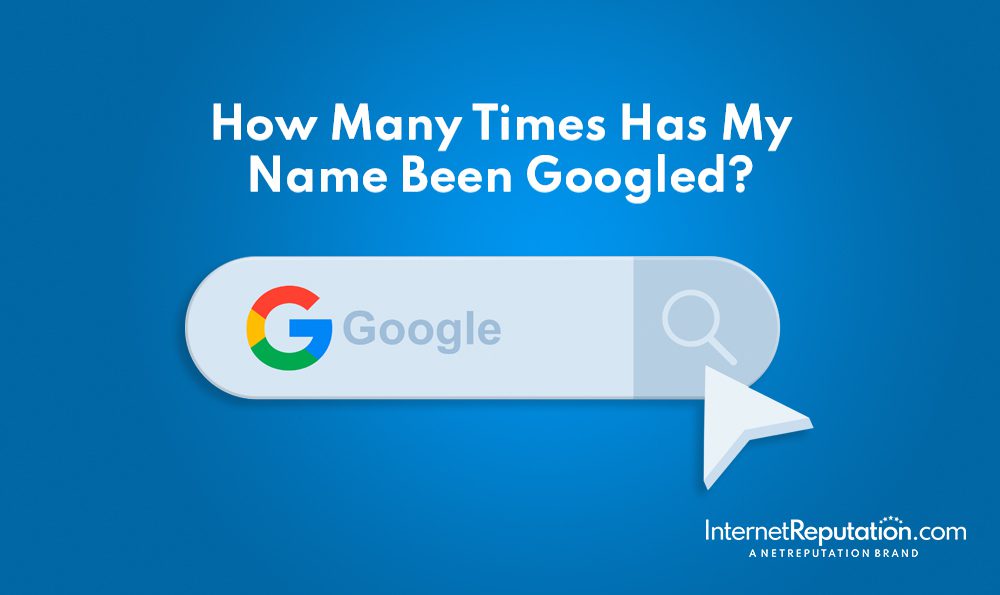How Many Times Has My Name Been Googled?

Google is a household name, but do you know how it works behind the scenes? The tech giant holds a wealth of information, from tracking searches to providing insights with Google Trends.
Have you ever wondered how many times your name has been searched? We’ll show you how to find out using Google Trends, along with factors that can affect the accuracy of this data.
Key Takeaways:
- Google tracks individual searches and collects information on search trends.
- Google Trends allows users to see how many times their name has been searched on Google.
- The accuracy of this data can be affected by factors such as common names and spelling variations.
What Is Google?
Google is a leading search engine crucial in shaping individuals’ online presence and information accessibility.
Being the world’s most widely used search engine, Google search has a profound impact on how people find, access, and evaluate information online. Its complex algorithms help deliver relevant search results, influencing what users see and click. As a result, businesses and individuals alike strive to enhance their rankings and visibility on Google to reach a broader audience and increase their online presence.
Given Google’s extensive reach, managing personal information online is also vital in today’s digital age. With the vast amount of data collected by Google, safeguarding one’s privacy and ensuring that only desired information is shared is crucial for protecting one’s online reputation and identity.
How Does Google Track Searches?
Google tracks searches through IP addresses, allowing it to gather data and influence individuals’ online reputations.
IP addresses are unique numerical labels assigned to devices connecting to a network, acting as virtual identifiers for online activities. When users enter a search query on Google, their IP address is logged alongside the search terms used in Google search results.
This information is then utilized by Google to tailor search results and targeted advertisements based on the user’s browsing history and preferences. Consequently, this targeted approach can impact how an individual is perceived online, shaping their digital footprint and reputation.
By analyzing search patterns linked to specific IP addresses, Google can create detailed profiles of user behavior, further enhancing the personalization of online experiences.
What Is Google Trends?
Google Trends is a tool and service provided by Google that offers insights into search trends and popular search words, aiding in data analytics.
Analyzing search patterns and volume helps users gauge the popularity of various search queries over a specific period. Users can compare the relative search volume of different terms, revealing seasonal trends, geographic differences, and related queries. This tool enables businesses and marketers to refine their content strategy, identify emerging trends, and tailor their campaigns to meet the ever-changing demands of online users. Using Google Trends, users can gain valuable insights into consumer behavior, allowing for informed decisions that can drive traffic and engagement.
How Does Google Trends Work?
Google Trends analyzes search results and user queries to provide valuable data on search trends and analytics.
One of the key functionalities of Google Trends is its ability to track changes in search interest over time, allowing users to identify trending topics.
By analyzing the volume of searches for specific keywords or topics, Google Trends offers insights into what people are searching for and when these searches peak.
This data can be broken down by region, time frame, and category, giving users a comprehensive view of search behavior.
Can Google Track Individual Searches?
Google can track individual searches, potentially exposing personal details and online activities to data collection.
When you search on Google, your query is stored and linked to your IP address, location, and other identifiable information. This allows Google to create a comprehensive profile of your interests, preferences, and browsing habits. Over time, this data can be used to serve targeted ads, customize search results, and even predict your future behavior online. While this level of personalization may enhance user experience, it also raises concerns about privacy and the security of your data.
What Information Does Google Collect?
Google collects various information through tracking codes, including search history, website visits, and online presence data.
Access to this information allows Google to enhance user experience by personalizing search results and targeted advertisements.
Search history helps determine user preferences while analyzing website interactions, improving overall functionality and relevance. This data collection also benefits businesses and website owners by providing insights into audience demographics and behavior. Accumulating online presence data enables Google to refine its algorithms and deliver more accurate and tailored search results.
How Does Google Use This Information?
Google utilizes collected information for data analytics, targeted advertising, and personalizing search results based on individuals’ personal information.
By analyzing various data points such as search history, location data, and browsing behavior, Google can create detailed user profiles to deliver more relevant ads and search results.
Furthermore, AI algorithms are employed to continuously improve the accuracy of these personalized experiences, leading to higher engagement rates and better ad targeting.
While these practices enhance user satisfaction and drive revenue, they raise important questions regarding the trade-off between personalized services and user privacy in the digital age.
How To Check How Many Times Your Name Has Been Googled?
You can use tools like Google Trends to track your online reputation and visibility to determine how often your name has been searched on Google.
To start this process, go to the Google Trends website and enter your name in the search bar. Google Trends provides data on the search volume of specific terms over time, giving you insight into the popularity of your name on the internet.
Next, set the timeframe for your search to get a clear picture of when interest in your name peaked. Remember that monitoring the frequency of searches for your name is essential for managing your online presence and ensuring that the information available about you is accurate and up-to-date.
Step 1: Go to Google Trends
The first step in checking how many times your name has been googled is to visit Google Trends, a tool Google provides for tracking search trends and user interests.
Once on the Google Trends homepage, you will notice a search bar where you can input your name or any other keyword or topic you want to find information about. After entering the search term, you can adjust filters such as time range, location, and category to refine your search. This allows you to delve deeper into the search data and gain insights into when and where your name or keyword is most popular.
Step 2: Enter Your Name in the Search Bar
Next, enter your name in the search bar within Google Trends to generate insights into the search frequency and online visibility associated with your name.
By inputting your name into the search bar on Google Trends, you will be able to analyze trends related to your online presence. This tool provides valuable information about how often your name is being searched, which can indicate your level of digital influence. Monitoring this data can help you stay informed about your online reputation and take the necessary actions to manage it effectively. Understanding your name’s search frequency and visibility can also aid in personal branding and online identity management.
Step 3: View the Results
Analyze the results of Google Trends to understand the search data associated with your name, including trends, search volume, and insights into your online visibility.
When looking into the Google Trends results, pay attention to the trending topics related to your online presence. These trends can offer valuable insights into the public’s interest in your brand or persona at a given time. Observe the search volume for your name to gauge the level of online activity surrounding you. A high search volume could indicate a strong online presence, while a sudden drop may hint at a potential issue. By examining these metrics closely, you can better manage and enhance your online reputation.
What Factors Can Affect the Accuracy of This Data?
Several factors can influence the accuracy of search data related to your name, including common names, spelling variations, and privacy settings on social media.
Name uniqueness plays a crucial role in determining the precision of search results, as individuals with more common names might encounter challenges locating specific information online.
Spelling variations can lead to discrepancies in search accuracy, especially when data is not consistently labeled.
The privacy controls set on social media platforms can restrict the visibility of certain details, affecting the completeness of search outcomes.
Interactions on social media platforms can influence search data by shaping the portrayal of an individual based on their online activities, friends, and connections.
Common Names
Common names pose a challenge in accurately tracking search data, as multiple individuals with the same name may influence search results and visibility.
When someone is searching for a person with a common name like John Smith or Sarah Johnson, it can be difficult to pinpoint the specific individual you are looking for. This can lead to skewed data analysis and inaccurate insights.
Distinguishing between individuals with identical names becomes daunting for search engines and data analysts. The lack of unique identifiers attached to common names further complicates associating the correct information with the correct person.
Spelling Variations
Spelling variations can impact the precision of search data, leading to discrepancies in online visibility and search results associated with your name.
When individuals search for you on the internet, they may unknowingly use different spellings or variations of your name. This can result in fragmented search data, making it challenging for others to find accurate information about you. For example, if your name is John Smith, but someone searches for Jon Smith or John Smyth, the results may differ greatly. To maintain consistency and ensure better online visibility, using the exact name representation across all platforms, websites, and social media profiles is essential.
Multiple People with the Same Name
Multiple individuals sharing the same name can complicate search data accuracy, as different individuals with identical names may influence search results.
One of the main challenges is that search engines can have difficulty distinguishing between these individuals, leading to mixed-up information or incomplete profiles. This can be particularly problematic for professionals or individuals seeking to establish an online presence.
To stand out in a sea of similarly named individuals, it is crucial to establish unique online identifiers such as a personal website, a professional social media presence, or a blog dedicated to specific areas of expertise. Utilizing these channels can help enhance personal visibility and ensure that search results accurately reflect the intended individual.
Private Browsing
Private browsing modes can impact the tracking of search data, potentially limiting the accuracy of personal search results and online visibility metrics.
When users engage in private browsing, their browsing history, cookies, and temporary files are not stored on the device. This means that websites cannot easily track their activities, leading to more restricted access to previous search data. As a result, the personalized results typically obtained based on browsing patterns may be less tailored. Consequently, the profile built by search engines for each individual may be less detailed, affecting the targeting of ads and content displayed. Individuals conscious of their online presence and privacy often utilize these modes to maintain control over the information shared and received. While it helps protect personal data from being stored and accessed, it also means that the search engines may struggle to provide accurate targeted content.
Limited Timeframe
The timeframe for search data analysis can influence data accuracy, as limited data points may not provide a comprehensive view of your online presence over time.
It is crucial to understand that the frequency at which data is collected can significantly impact the insights gained from the analysis. Continuous monitoring and tracking are essential to capture trends, patterns, and fluctuations in search behavior. Regularly analyzing data over extended periods can uncover long-term performance metrics and identify areas for improvement.
Can You Opt Out of Google Tracking?
Individuals can manage their privacy settings to opt out of certain Google tracking mechanisms, safeguarding their online activities and personal data.
Users can utilize data management tools provided by Google to review and control the information collected about them. These tools allow individuals to delete specific search history, location tracking, and other activity data stored by Google. By taking advantage of these tools, users can have more control over their online presence and reduce the amount of personal information stored and used by tech giants. This proactive approach is crucial in maintaining online privacy and enhancing data security.
How to Change Your Privacy Settings on Google
To change your privacy settings on Google, navigate to the Account Settings section and modify tracking codes and data collection preferences to enhance online privacy.
Once you have logged into your Google account, look for the profile icon or your name in the top right corner of the screen and click on it. A drop-down menu will appear, where you should select ‘Google Account’. This will take you to the main settings page for your account. Within the dashboard, locate the ‘Privacy & personalization’ section. Here, you can adjust various privacy settings such as managing your activity controls, ad personalization, and controlling what data Google collects from you.
Frequently Asked Questions
How many times has my name been googled?
According to the reference data, there is no record of your name being googled.
How can I find out how many times my name has been googled?
You can use a search engine analytics tool or website to track the number of times your name has been searched on Google.
Is it possible to know how many times my name has been googled?
No, it is impossible to know the exact number of times your name has been googled, as search engines do not release this information.
Why is it important to know how many times my name has been googled?
Knowing the number of times your name has been searched on Google can give you an idea of your online presence and popularity.
Can I request to have my name removed from search engine results?
You can request your name removed from search engine results, but it may not guarantee complete removal.
Is there a way to see if specific people are googling my name?
No, search engines do not provide information on who is searching for your site or name, only the number of searches overall.



